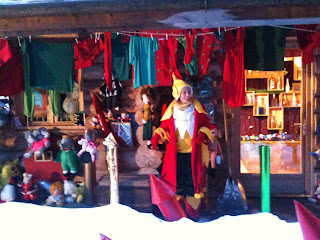Since my last post on Why Chinese Mothers are Superior, the debate has been raging in the United States on Amy Chua's new book. One blogger at Seattle Pi speaks positively about how western parents could learn from Chua's approach:
I'm not advocating cutting out all play dates and forcing your kids to play piano and violin in lieu of sports, but I do believe that there is a large core of truth in her approach. Assuming greatness in your child and teaching them to reach for the stars, rather than being praised for the barest of efforts makes sense.
Others have come out negatively. Dr. AnnMaria de Mars, who posted last week on Why American Mothers are Superior, quipped:
Dr. Chua is raising her children to fit into the Ivy League mold.
Me, I’m raising my children to be themselves and to mold the world to fit them.
Jokes about A+s and gold medals aside (much of my book is tongue-in-cheek, making fun of myself), I don’t believe that grades or achievement is ultimately what Chinese parenting (at least as I practice it) is really about. I think it’s about helping your children be the best they can be—which is usually better than they think! It’s about believing in your child more than anyone else—even more than they believe in themselves.It's the last part that's hard. How do you get your child to understand that she can do something when she is convinced that she can't or that, if she can, it's not worth the effort. I would love to teach the Bambina, age 6, to tie her shoelaces. That's going to be a hard task here in Madagascar because she doesn't even where shoes with laces most of the time - just sandals or even flip-flops. Getting her to care enough about learning to tie shoelaces by herself is going to be difficult. Yet I think she is capable of it and I know that if she did learn, she would be proud of her achievement.
David Brooks of the New York Times raises another important point that I haven't seen articulated as well in any other critique of Dr. Chua's parenting approach. In an Op-Ed, he accuses Dr. Chua of being "a wimp" because she refused to let her daughters navigate the complicated terrain of girls' sleepovers:
Practicing a piece of music for four hours requires focused attention, but it is nowhere near as cognitively demanding as a sleepover with 14-year-old girls. Managing status rivalries, negotiating group dynamics, understanding social norms, navigating the distinction between self and group — these and other social tests impose cognitive demands that blow away any intense tutoring session or a class at Yale.Brooks goes on to write:
Participating in a well-functioning group is really hard. It requires the ability to trust people outside your kinship circle, read intonations and moods, understand how the psychological pieces each person brings to the room can and cannot fit together.
This skill set is not taught formally, but it is imparted through arduous experiences. These are exactly the kinds of difficult experiences Chua shelters her children from by making them rush home to hit the homework table.












